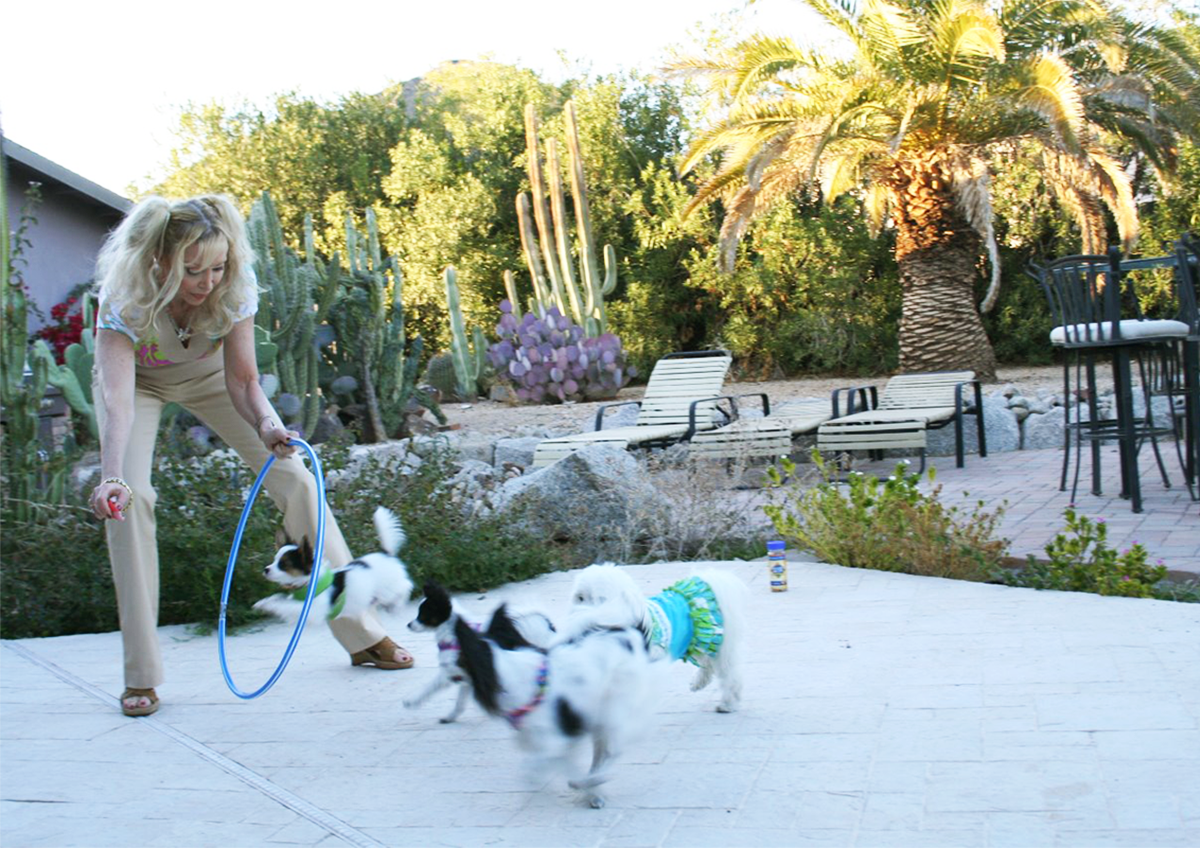

By Cie Allman-Scott, Ph.D.
Over the last several years, dogs have become a favorite species of comparative behavior for psychologists. In recent research, dogs seem to solve social problems more similarly to human infants than many primates. While that is fascinating, this article will focus on what we can do to improve our dogs’ cognition and counteract some expected yet unwelcome signs of aging.
Neurogenesis allows any brain to modify and develop, becoming the product of individual experiences and choices; cells that fire together wire together to improve cognitive function.
There is much you can do to keep your dog mentally sharp and fight cognitive dysfunction with an antioxidant-rich diet and plenty of mental stimulation.
Basically, there are three things we can do to improve the overall health of our best friends. Let’s take a look at exercise, nutrition and some more advanced learning and fun for our loving pets. By implementing some or all of these suggestions, you may actually see some instant results and possible breakthroughs for you and your dog, as you enjoy more of his youthful energy and vitality.
Exercise
Simply walking your dog has tremendous benefits and improves the health of your dog’s brain measurably. Walking is a great stress-reducing strategy and fitness combination for dogs and humans both. Six months of regular exercise results in increased brain volume. Focus, memory and prefrontal executive functions are enhanced by walking daily. Exercise balances neurotransmitters; your brain needs oxygen and glucose for protection of the neurotransmitter dopamine, the chemical that regulates feelings of “happiness.”
All mammals have “pleasure centers” in their brains that are stimulated by dopamine. When a dog is active and playing—fetching a ball, for example—dopamine is released in the pleasure center, and the dog is “happy.” I usually advise somewhat depressed human patients to exercise so they can experience more endorphins, which is a general term for all neurotransmitters that make us feel good.

A daily one-mile walk reduces dementia risk by 50 percent; walking six to nine miles a week will reduce the risk of developing Alzheimer’s, improve spatial memory and enhance the ability to solve mazes. If this isn’t enough for your own motivation, ask your children to walk your dog. In a University of Illinois study, dog-walking children ages 9 and 10 achieved better focus and better executive functions such as problem solving.
All in all, exercise enhances brain composition for you and your dog. The brain has the ability to reorganize itself by forming new connections between brain cells, known as neurons. This process, called neuroplasticity, allows us and our dogs to improve skills, knowledge and performance on tasks. It also inhibits actual shrinking of your brain, which I am certain you wish to avoid! The brain is a constantly changing organ; reading this article will actually create microscopically identifiable changes in your brain. Without any type of mental stimulation or skill challenge, neural pathways will dissipate. Your brain is definitely a “use it or lose it” organ.
Diet
We all know that feeding our dogs irresponsibly is wrong, but perhaps a few facts will anchor more discipline for human owners. Animals that eat 35 percent fewer calories live 35 percent longer. Also, the rate of degenerative disease is slowed by caloric restriction. Pet nutritionists suggest eliminating cereal grains such as corn, corn gluten meal, ground corn, wheat gluten, wheat flour, or any flour, as it can cause inflammation and allergic responses in many dogs. Many humans have found that their weight and overall health is easier to manage if they eliminate gluten, so consider it for your pets as well. Avoiding flour and soy can improve allergic reactions and urinary tract infections. Other ingredients to steer clear of are meat and poultry byproducts, food colorings and dyes, Brewer’s rice, hulls, soybeans and of course sugar.
We must remember that while we are omnivores, our dogs are carnivores; they require meat, poultry or fish. Dogs do not have the complex digestive systems humans have. They need to strike a healthy balance of protein, fiber and fats, especially omega-3 fatty acids such as flaxseed and fish oil. While it can be very healthy to add fruits and vegetables to your dog’s diet, some vegetables and fruits—including avocados, broccoli, mushrooms, grapes and raisins—should be completely avoided. It is wise to research such things before feeding new foods to your dog. Optimal nutrition benefits your dog’s body, mind and spirit.
Fun and Learning
Simple dog games like throwing the ball or Frisbee keep your dog fit and prevent atrophy of your dog’s brain and muscles. Brain games for dogs are becoming very popular, and it is becoming more common for dogs to attain a vocabulary of more than 1,000 words. Introduce games that require the dog to solve a puzzle to get the prize such as Kong toys, kibble balls and treat puzzle toys.
Investing time in your dog can prolong his life and enrich both of your lives. It is certainly worth the love, intelligence and beauty that comes back to us.
Dr. Cie Allman-Scott is a Media Psychologist and lectures worldwide about the cognitive potential of the brain. Dr. Cie can be reached at cie@JetSetPHD.com or CieScott.com.





